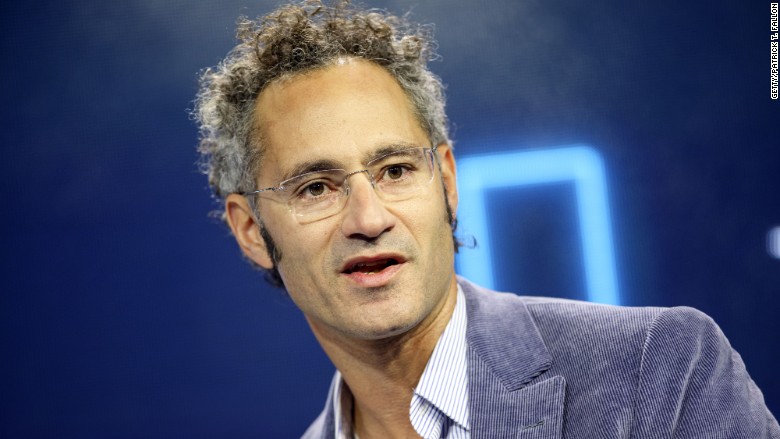
Palantir CEO Alex Karp said he's made a lot of mistakes, but discriminatory hiring isn't one of them.
"I can assure you, I've f***ed up so many things at Palantir. The one thing I have never screwed up is discriminating against somebody based on any variable that they would care about," he said onstage Wednesday at the Wall Street Journal Digital Conference.
Palantir is one of the most valuable privately-held companies in the world. It contracts its data intelligence services to the U.S. Army and the FBI, among others. In September, it got slapped with a lawsuit by the the U.S. Department of Labor, which alleged that its hiring practices were biased against Asian candidates.
"We will resolve this one way or another," said Karp, who cofounded Palantir with four others, including billionaire Peter Thiel.
He cited the company's workforce numbers: 37% of Palantir's product developers are Asian and 25% of its workforce is, he said. He declined to comment further on the litigation, adding: "I'm already going to be slaughtered by my lawyers for what I've said, please let me go home to a safe life."
Related: Verizon exec on Yahoo deal: 'We have to be careful'
Karp denied that the company was having difficulty keeping contracts, noting that the company "dates heavily" before it "marries" -- meaning it is picky about who it actually works with. Karp said he tracks contracts worth $100 million as a metric for the company's success, stating that it had two in 2014. This year, it'll have 20, he said.
Palantir is projecting to be profitable 2017, according to Karp. "Unless we do something radical to prevent profitability."
That could also mean that an IPO is in Palantir's near future. "The going public option unfortunately gets foisted upon you when you become profitable," added Karp, who said that he's "philosophically always been opposed to going public."
One reason for his aversion is that he said it can be more difficult to compete for engineering talent as a public company. However, he said Palantir will do what's "simplest and best for our employees. The most important thing is that they know that their equity is fairlyy valued."

